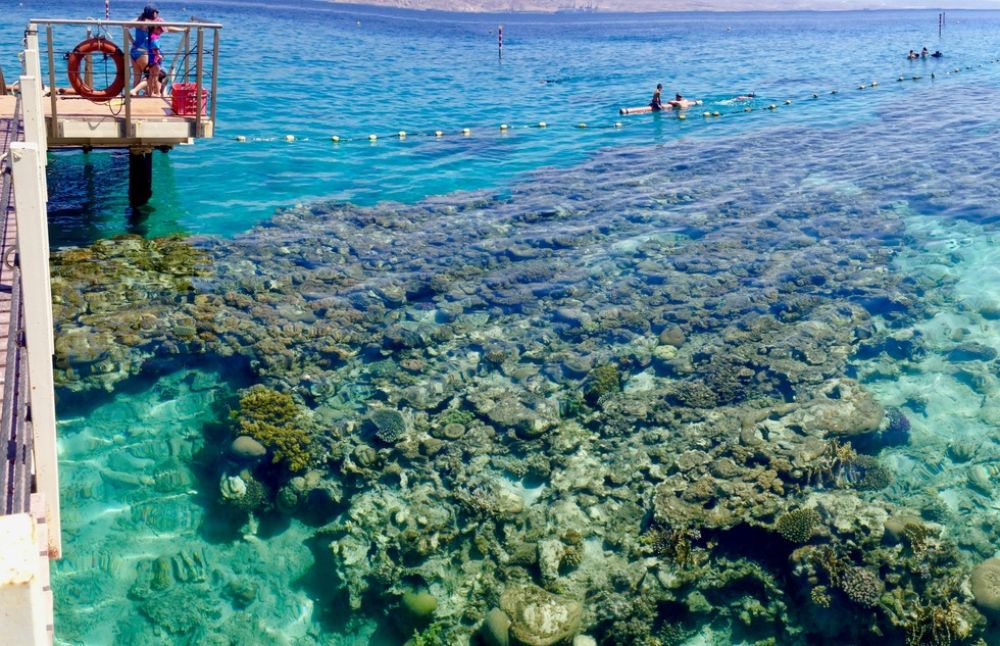

Situated at the southern tip of Israel, the Coral Beach Nature Reserve in Eilat has long been a haven for tourists seeking the beauty of the Red Sea's underwater world. Established as a nature reserve in the 1980s, this enclave has become iconic for its vibrant coral reef, which is one of the most densely populated in the area and one of the few that is easily accessible from the shore.
The history of modern tourism in Eilat is relatively recent. The city's transformation from a small port and military outpost into a touristic hub began in the 1950s and 1960s when its potential as an attractive destination for sun-seekers was first realized. The completion of an airport in 1949 and the development of road access helped facilitate this transformation.
The official designation of the Coral Beach area as a nature reserve was a pivotal moment in Eilat's touristic evolution. Recognizing the need to protect the delicate coral reef and the diversity of marine life it supports, authorities sought to balance conservation efforts with the booming demand for recreational diving and snorkeling.
In recent years, Eilat has seen a shift towards sustainable tourism practices, influenced by the global trend of environmental responsibility. The reserve itself limits the number of visitors allowed at any given time to prevent excessive harm to the reef. Tourist education has also become a priority, with guided tours and informational signage helping to raise awareness about the importance of preserving this unique ecosystem.
Moreover, the increasing popularity of eco-tourism has led to new opportunities for visitors to engage in conservation efforts directly. Programs such as 'adopt-a-coral' and guided 'eco-snorkeling' experiences blend the adventure of exploration with the satisfaction of contributing to environmental protection.
Despite its success in attracting tourists from around the world, the Coral Beach Nature Reserve faces ongoing challenges due to environmental stressors, including coral bleaching and the impacts of climate change. Efforts to combat these threats are bolstered by strong regulatory policies and the intrinsic motivation of visitors who come to appreciate the delicate balance of this natural wonder.
Looking forward, Eilat hopes to continue positioning itself at the forefront of eco-tourism. With its blend of natural beauty, commitment to conservation, and ongoing investment in sustainable infrastructures, the Coral Beach Nature Reserve is poised to remain one of Israel's top tourism gems for years to come.